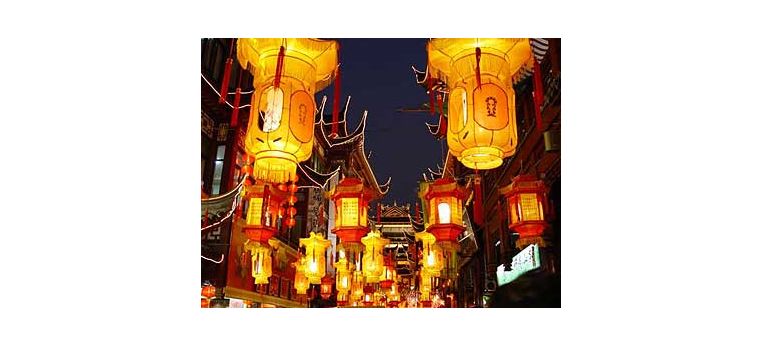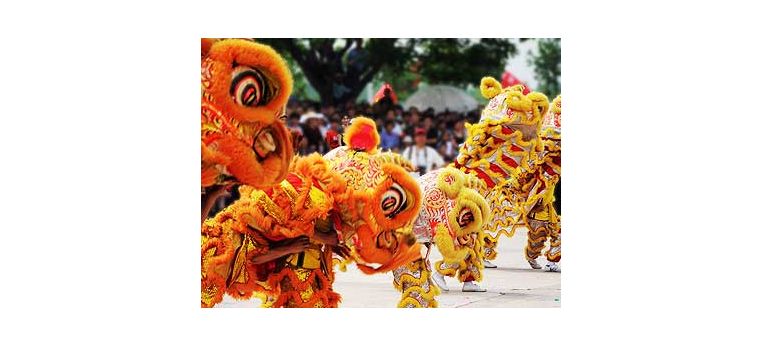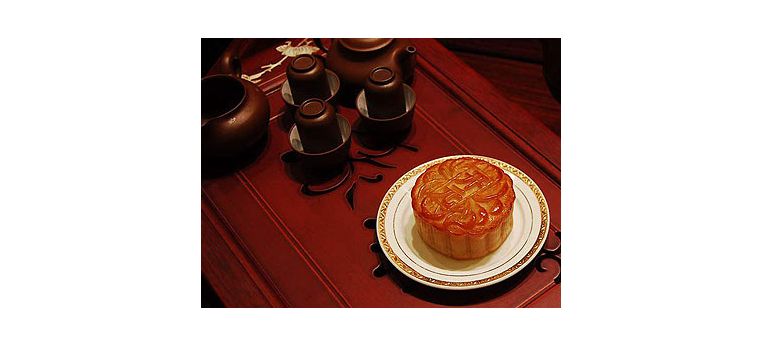


The Chinese Festivals occur throughout the Lunar year. As our calendar
year and the Lunar year is different, the festivals fall on different
dates each year. Each festival is rich on tradition, excitement and
participation. Festivals are a very important part of Chinese tradition.
The particular festivals listed here are of special interest to the
tourists and knowing a bit more about them will help you enjoy and to
participate in these magic celebrations.
Chinese New Year
The Chinese New Year is the most important of all the festivals. It is a
time of centuries old tradition. The date of the New Year falls
somewhere between late January and late February, depending on the Lunar
(moon) calendar. A few weeks before, homes are cleaned thoroughly in
preparation for the holiday. Tangerine plants, flower displays, Chinese
paintings and calligraphy are sold to eager buyers. Everywhere is laden
with brightly coloured decorations, stores are packed with shoppers. The
Chinese New Year is a time of settling all debts and spreading good
intentions to family and friends.
The eve of the New Year, Chuxi in Chinese, is a special time for family
and friends. All preparations have been made, including prayer and
homage to "Zao Wang", who returns to heaven to report on the behaviour
of the humans for the year. " Zao Wang " means "Stove Master" and he is
the kitchen god of China.
The actual New Year day is spent with close friends and relatives,
worshipping ancestors and gods. New clothes and new shoes are worn to
symbolize the New Year and red packet containing small amounts of money
are exchanged.
Lantern Festival
On the fifteenth day of the New Year, a spectacular three day festival
of lanterns begins. Lanterns bearing the symbols of good fortune,
happiness and health are purchased and hung in homes. At the end of the
lantern festival, the New Year festivities are over and life settles
back to its normal pace.
Ching Ming
The Ching Ming festival is celebrated in April and is known as
"Remembrance of Ancestors Day". This day is devoted to honouring
relatives who died. Thousands of Chinese visit cemeteries to clean the
graves of their loved ones. The Chinese hold great respect for their
ancestors and the young are taught to pray to, and for, the family
spirits. Young people accompany their parents to the gravesite and help
in the cleaning process. The "willow" is regarded as the symbol of light
and enemy of darkness in Chinese culture. On Ching Ming, willow twigs
and branches are hung in doorways to ward off the evil spirits. It is
believed that if you don't hang the willow, you will appear as yellow
dog in your next life!
Duan Wu (Dragon Boat) Festival
Dragon Boat Festival is an exciting event in China. It is held on the
fifth day of the Fifth Moon, usually in June. The day is set aside to
honour the death of Qu Yuan, the famous Chinese port and patriot. Qu
Yuan was a high court official of the State of Chu in the period of the
warring states. Qu Yuan wrote beautiful and passionate poems for his
country, against the evil officials. Eventually, he became disillusioned
and he took his own life by drowning himself in the Milo River. People
were so upset by the loss of Qu Yuan, they took to boats and beat the
water with paddles to stop the fish from eating his body. They also
threw rice dumplings into the water to tempt the fish away from their
hero.
Today, the Dragon Boat races commemorate Qu Yuan's death. The boats,
ranging in length from 45 to 120 feet long, are decorated with colourful
pennants and a fierce head of a dragon at the front of the boat,
driving it on to victory. The dragons are searching the water for Qu
Yuan's body, symbolically, of course.
Mid Autumn Festival
This festival is held on the fifteenth day of the Eight Moon and its
popularity and participation for the young is second to the New Year
Festival. During the Tang Dynasty (618 - 907), Chinese leaders took up
the practice of watching the moon. This day is set aside just for this
purpose. People travel to high places to make sure they have a good view
of the moon. Traditionally, children carried lanterns of animal shapes
lit by candles.
Now, the lanterns are found in every shape and material imaginable.
Dogs, cats, airplanes, yachts, speedboats, pictures of gods, sharks and
assorted fish lanterns are sold at very reasonable prices at the Chinese
Emporium, all Chinese department stores and in market stalls.
"Mooncakes" are also an important part of the festivities. Many years
ago in the 14th Century, a revolt against the Mongols developed, and
messages of the revolution were written on paper, then baked into the
cakes. The secret messages were smuggled to the revolutionists. Things
are much tamer now, and the mooncakes are given to friends and relatives
during the festival. These pastries are a mixture of ground lotus,
mashed beans, sesame seeds and dates.